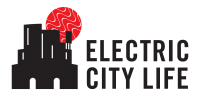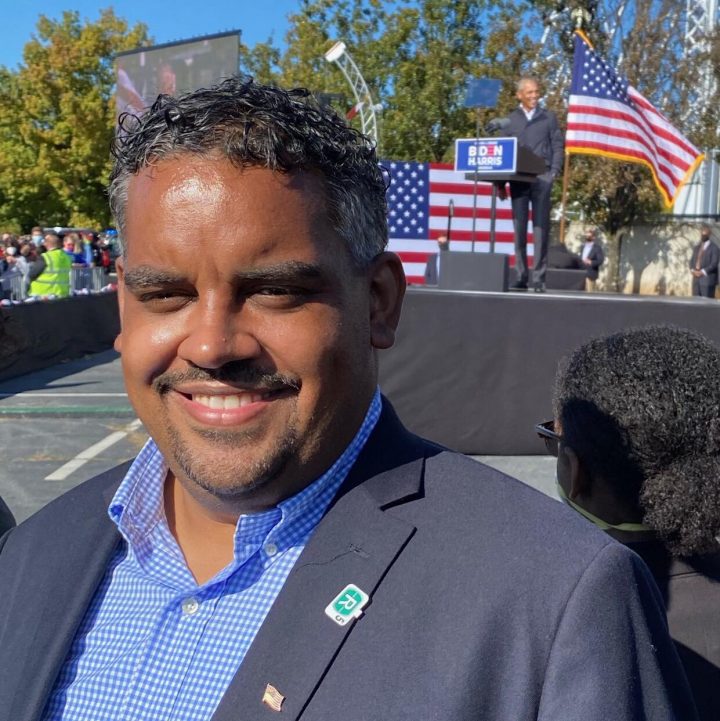
Georgia Political Director for Biden/Harris 2020 Campaign
Were you surprised that Joe Biden won Georgia?
“No. We had a tremendous campaign with volunteers giving up their time and driving all over the state to encourage voter turnout. This was positive and important work for the [Democratic] Party. Plus all the voter registration efforts of Stacey Abrams and the Fair Fight organization.
Also, over the last several election cycles, we’ve had some really close races that have seen the state becoming more Blue. Lucy MacBath won a close race in her first election in the 6th District for Congress. So you can see how metro Atlanta especially has been trending in that direction. Places like Gwinnett County, which is a perfect example.
I would also say Joe Biden’s message of building back better, of being inclusive, of bringing everyone together, and him saying that, whether you support him or not, he’s there to work for all Americans. I think that’s a message that resonated with Georgians.”
Do you think there’s any chance that the controversy over the vote’s audit will have any on the state’s 16 Electoral College votes here?
“The audit is something our office can’t really talk about.”
EDITOR’S NOTE: Interview was done Wednesday, November 18—he day before Georgia Secretary of State Brad Raffensperger certified Biden’s win in Georgia, saying that the recount results “reflect a verdict of the people.” Because Trump came with 0.5% of Biden, his campaign can legally request a recount and did so on Saturday, November 21..
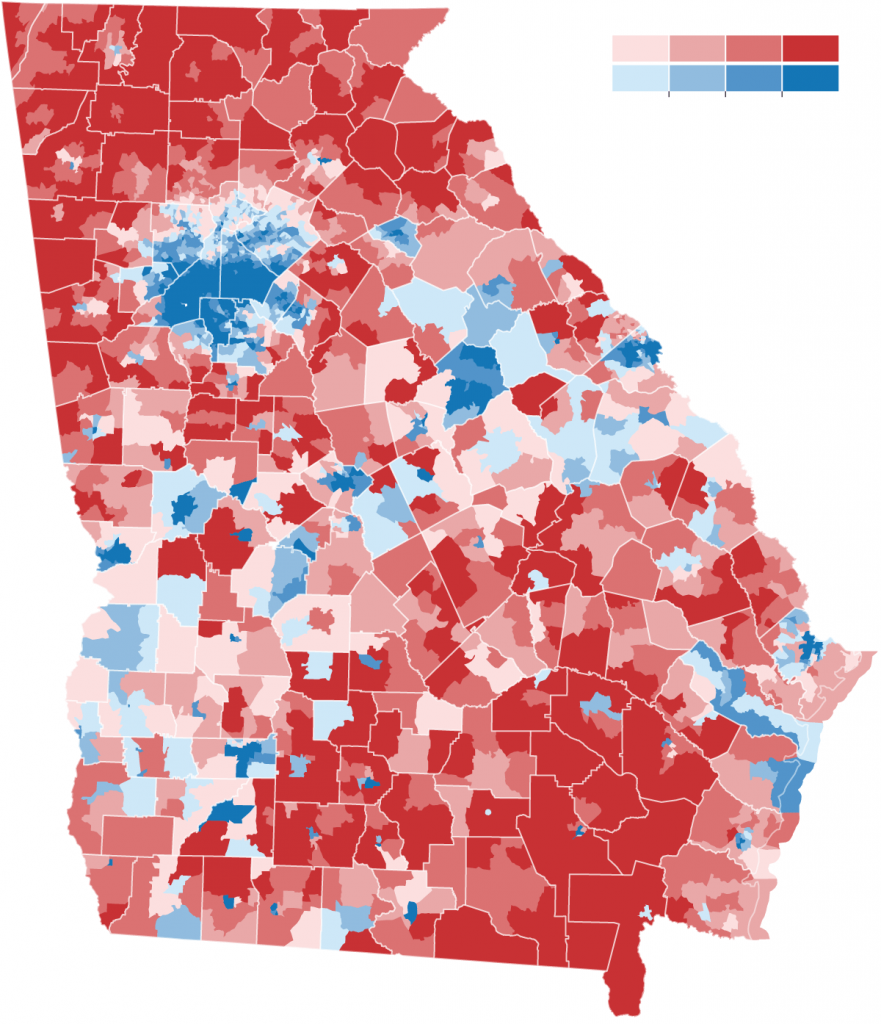
What would you say was the one key to Biden’s victory here?
“It’s tough to narrow it down to one thing. If I had to say, it would be increased turnout in some of the larger cities across the state. We saw high turnout in metro Atlanta and other cities: Augusta, Savannah, Macon, and Columbus.
Vote by mail was a big thing.
We focused a lot on voter education and helping voters navigate an uncertain landscape. Because of the coronavirus, people had difficult decisions to make on how they were going to cast their ballot. We encouraged them to have a voting plan and we shared information on how they could cast their vote as safely as possible.
So that voter-education piece is the one thing I would say was the key to victory.”
What were your duties as Georgia Political Director for the Biden Campaign?
“The primary thing that was my responsibility was to maintain relationships with elected officials who are supporting the Biden campaign. That was a lot of work. Pretty much anyone who was a Democrat who was involved, it was my job to help manage their needs as well as what the campaign needed of them, such as local officials hosting their own phone bank.
And answering a lot of questions. I joked to my friends that a large part of what I did was similar to customer service. If somebody called and needed some information, it was my job to make sure they had information. If they needed something, it was my job to make sure it got done.
When I first got started, the state director said that any duty that doesn’t fall under the job duties of another department would fall under the political department. It made for an exciting job—I never knew what was going to come next. Any day that I thought was going to be easy, something would always come up and make it a challenge. But I enjoyed it and it was definitely worth it.”
When the Biden campaign stopped in Warm Springs, things got ugly, with scuffles in the street between his supporters and Trump supporters. It was an intense election. What kind of vibe did you discover on the campaign trail?
“I didn’t see anything like that. We did an event in Savannah where some counter-protesters showed up but nothing particularly nasty. I had a pretty positive experience overall. On some of the local races I’ve done in southwest Georgia I probably experienced worse on those than I did on this one, to be honest with you.
I’ve done campaigns in Phenix City where people let me and some folks I was with know that we were not welcome in that area. I had people throw drinks at me. Once, I was with an elderly woman, the wife of a Vietnam veteran, and someone threw a large drink on us. Luckily stuff like that doesn’t happen very often. Most people supporting the other candidate just turn the other way or stick to themselves.”
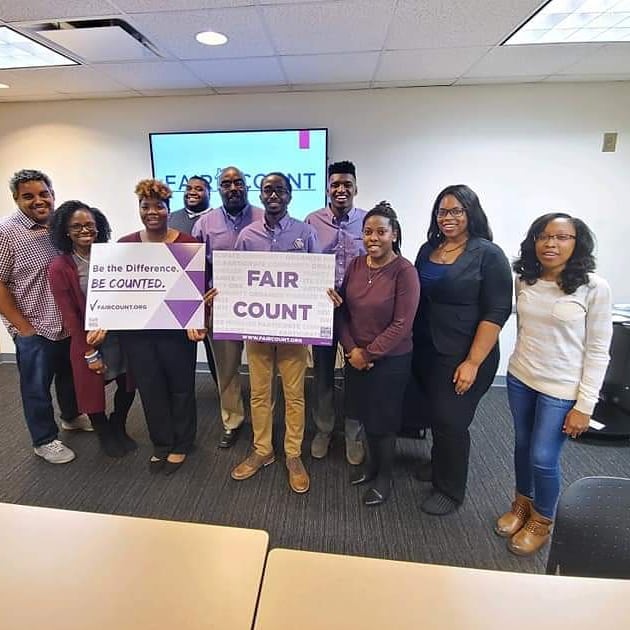
Is Columbus a Blue city?
“Yeah I would say so. We’ve consistently gone Blue ever since I’ve been paying attention. I think we will continue to trend in that direction, as will all of our mid-sized cities in the state. Plus, we have Democratic elected officials in Harbison, Hugley, Smyre, Buckner. They are our representatives in the state delegation.”
What are the important issues to voters in Columbus?
“Having such a large military base next door, veterans’ issues are a big thing. Particularly healthcare for our veterans. I know there’s been a lot of discussion recently about establishing a VA clinic in the area.
Economic development and jobs is another big thing.
A large chunk of Democrats in Columbus tend to be African American. So criminal-justice issues and social-justice issues are extremely important topics that I think voters value in Columbus, Georgia.”
What drew you to a career in politics?
“I was born and raised in Columbus. My father was in the military. My parents separated at a very early age, but I grew up in Benning Hills—close with easy access to the base.
One of my earliest memories, at school during the summertime the grounds weren’t kept up. So the grass was chest high. We started seeing wildlife take over. The PTA gathered members of the community together and held a public meeting where they gave the School Board member and the City Council member for that area a really hard time. Some media showed up. And within a few days, I saw the grounds cleaned up, the playgrounds fixed.
What that showed me was how people getting involved in the political process could have an impact on their lives and people’s lives around them. Something as small as a school not being kept up in the summertime inspired people to put their voices together and make elected officials take action. It showed me how you can organize people to really change their communities.
When I was an undergraduate at Georgia Southern, I bounced around and changed my degree program a lot. Political Science was something I felt like came natural to me. It helped give me a deeper understanding how elected officials and politics can affect just about every aspect of our lives. After graduating, I started volunteering on campaigns and then started to get hired into paid positions.
When I was getting my Master’s at Troy University, I needed to do an internship. I saw on Facebook an opportunity to intern with Mayor Teresa Tomlinson’s office. From there, a dear friend connected me to campaigns in Phenix City and that led to work for Congressman Sanford Bishop. Then it was full-time politics.
It’s interesting to look back and see how it all just went from step to step and then here I am.”
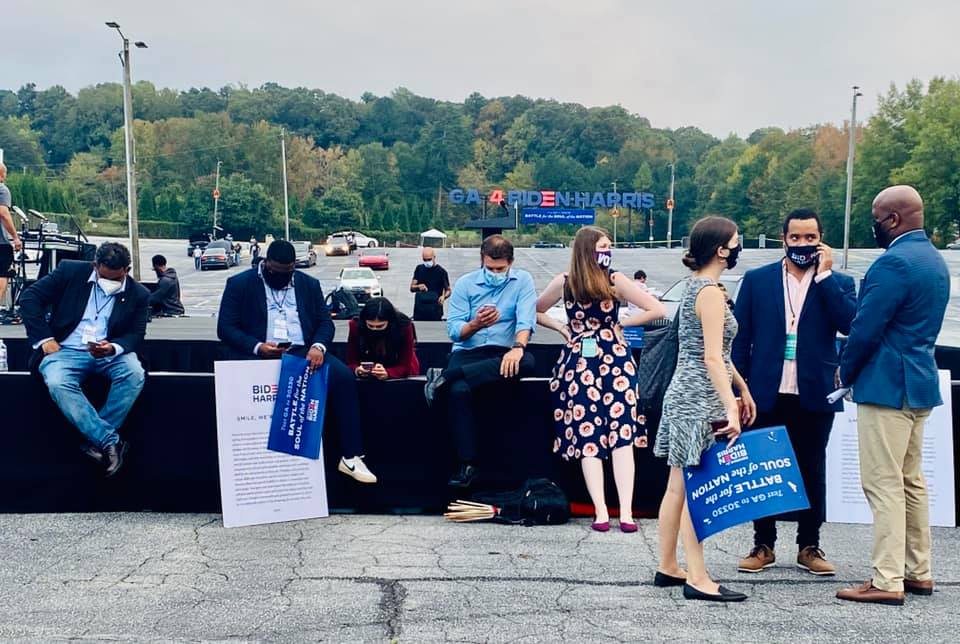
ABOVE: Dominick Perkins sits to check his phone at the far left.
BELOW:Georgia team for Biden/Harris 2020 with Perkins standing at center.
Pictures courtesy of Perkins’ Facebook page and taken by Deputy Georgia Political Director Reese Adams McCranie.
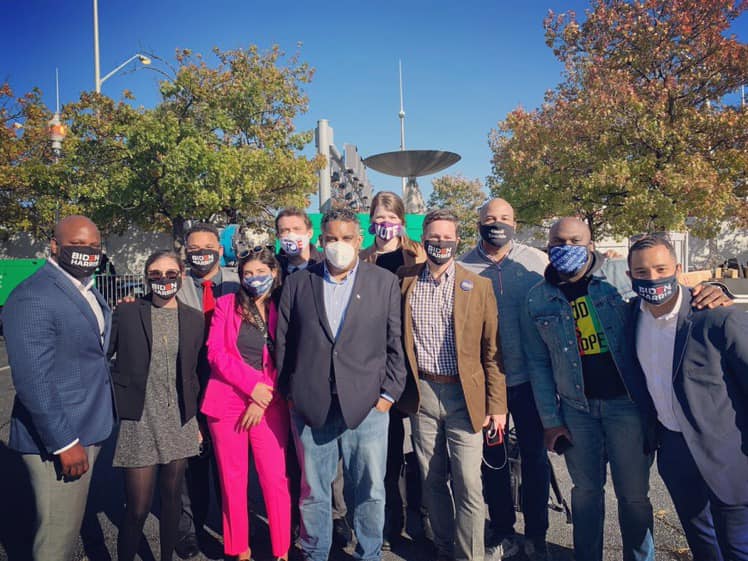
Given the history of our state and the South as a whole, is this win for Democrats significant?
“I think it’s huge.
For Georgia, this was the first win for a Democratic presidential nominee in 28 years. It’s an indicator that:
A) the state’s trending more Blue, and
B) that Georgians generally are starting to look at a different set of issues. The social issues that used to dominate politics in Georgia, I think, are becoming a lot more equal with economic issues. Those divisive, wedge issues tend to drive politics in our state but I think our state is slowly starting to move away from that.
For the South as a whole, the focus in presidential politics for so long was just on Florida and maybe some on North Carolina. And leave the rest of the South to figure it out on their own in presidential politics. Mississippi is a place where there’s a large amount of African American voters who can turn out. So that makes me think there’s going to be a re-evaluation of how we approach states in the South that were considered off-limits or no-chance are in play. Georgia was the first.”
Was Stacey Abrams coming so close to winning the governor’s race in 2018 proof that Georgia could change?
“The fact that she came so close was an indicator to a lot of people that Georgia was in play. Stacey Abrams’ race coming as close as it was, and getting all the national attention it got, did open up people’s eyes to the possibility. Prior to that, the closest statewide race had been 130,000 votes for a Democrat. The fact that she was able to get it down to 5 digits in the face of having a gubernatorial candidate who’s also Secretary of State, how that impacted turnout and so much more. Because that definitely had an impact.”
Did Brian Kemp steal that election?
“Steal is a tough word to use. But he definitely tilted things in his favor as far as turnout. And there are folks out there who think he stole the election.
When I see Stacey Abrams, and I’ve had the pleasure of seeing her a lot on the trail, I see some people jokingly, some people seriously, call her Governor Abrams. I share that sentiment.”
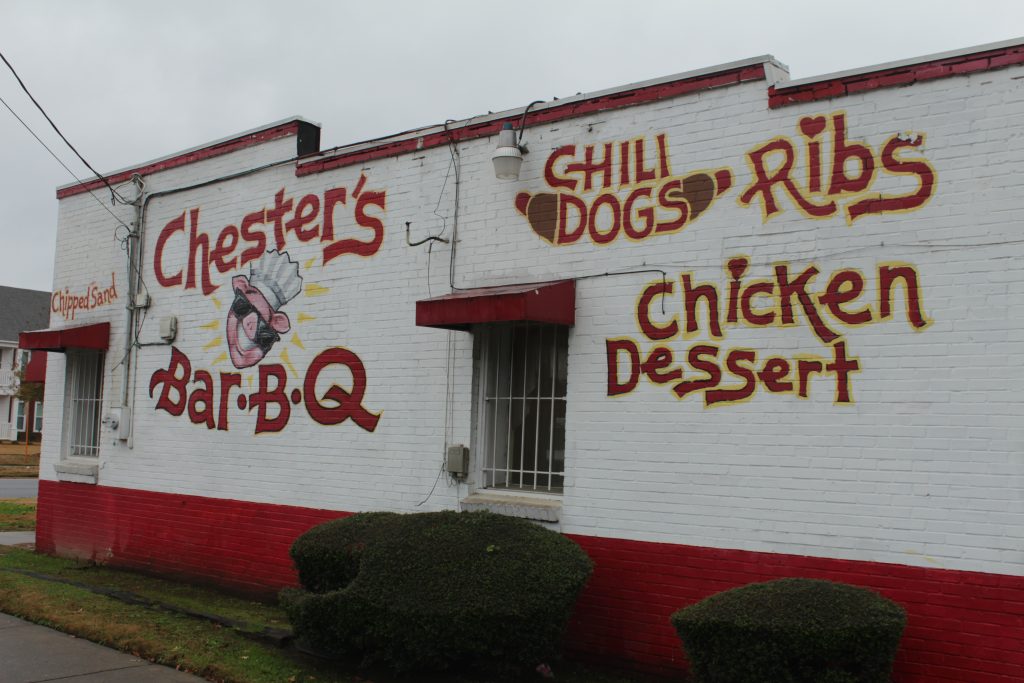
PHOTO BY FRANK ETHERIDGE
Age: 38
Education: “Dr. William Henry Spencer High School—the Victory Drive location”; Georgia Southern University, B.A. in Political Science; Troy University, Master’s of Science in International Relations.
Favorite Columbus restaurant: Chester’s Bar-B-Q
Best place to vacation in Georgia: Savannah
Favorite political figure in American history: Barack Obama
The one thing you would say right now to someone that doesn’t vote: “That your vote matters. And your vote counts. That you appoint the people that make the decisions that have an impact on every aspect of your life: the road you drive your car on, the food that you eat, and the taxes you pay.”
The one thing you would say right now to Donald Trump: “Do what’s best for the country.”
